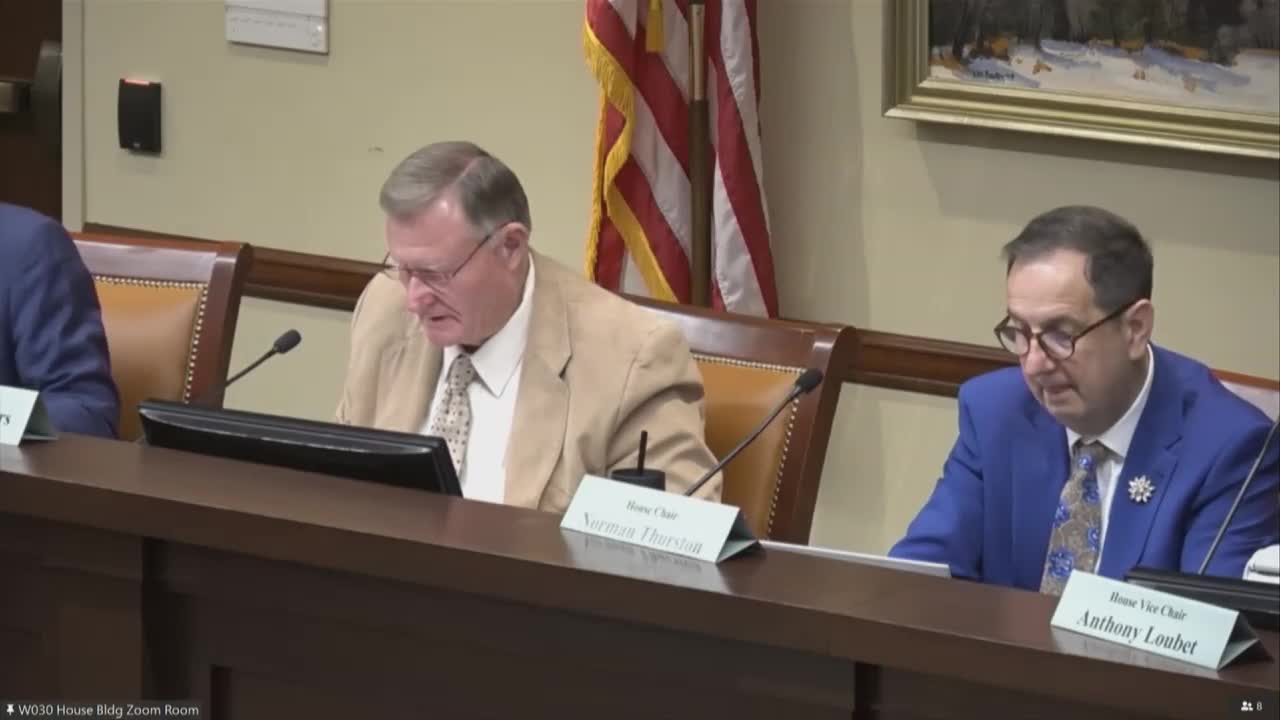Utah Debate Commission asks legislature to shift to ongoing $300,000 annual appropriation
Get AI-powered insights, summaries, and transcripts
Subscribe
Summary
The Utah Debate Commission told the General Government Appropriations Subcommittee it seeks a funding model change from repeated one-time grants to $300,000 ongoing annually to stabilize a four‑year election cycle budget that can reach about $600,000 in election years.
The Utah Debate Commission asked the General Government Appropriations Subcommittee on Feb. 7 to change its funding model from repeated one-time grants to an ongoing appropriation of $300,000 a year.
The request came during a presentation by Becky Edwards, cochair of the Utah Debate Commission, and Phil Cooper, the commission’s treasurer and cochair. Edwards said the commission is a nonprofit that organizes nonpartisan primary and general election debates for every congressional seat, the U.S. Senate and statewide offices. “The Utah Debate Commission is a nonprofit organization committed to substantive, independent, and nonpartisan debates of significance to the state of Utah,” Edwards said.
Nut graf: The commission told the committee its work is cyclical — it budgets on a four‑year cycle because statewide elections concentrate periodically — and that election‑year costs can be higher when debates are hosted at universities around the state. Cooper said the commission budgets on a four‑year cycle because statewide contests cluster on that timetable and some years require travel, equipment and lodging when debates are hosted off campus; he said a typical election cycle year can require about $600,000 in operating costs.
Cooper told the committee the proposed change would “normalize” funding across years, moving away from the current pattern in which the commission relies on one‑time appropriations. Edwards said the commission has held more than 56 primary and general statewide debates since its 2014 founding and that debates are broadcast statewide and streamed online. She also described the commission’s board composition — roughly one‑third media, one‑third institutions of higher education and one‑third community members — and noted that several higher‑education partners host events around the state, from Salt Lake to St. George.
Senator Mike Weiler, participating online, asked about a past complaint that a sitting member of Congress had been mistreated by the commission’s scheduling and process; Edwards and Cooper said the commission has sought to balance responsiveness to candidates’ schedules with consistency and transparency, and pointed to full participation in the 2024 cycle as evidence of that effort. Cooper described administrative staffing as a part‑time executive director whose hours flex up in election years and down in off years.
The commission did not receive a vote or formal direction during the hearing; the presentation was for the committee’s prioritization process. Committee members thanked the presenters and said they would consider the request as part of broader budget discussions.
Ending: The commission’s written materials submitted to the committee list the $300,000 one‑time and $300,000 ongoing request; the subcommittee did not take a vote on the RFA at the Feb. 7 meeting.
